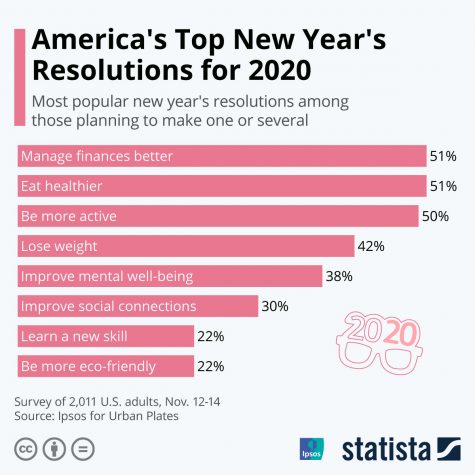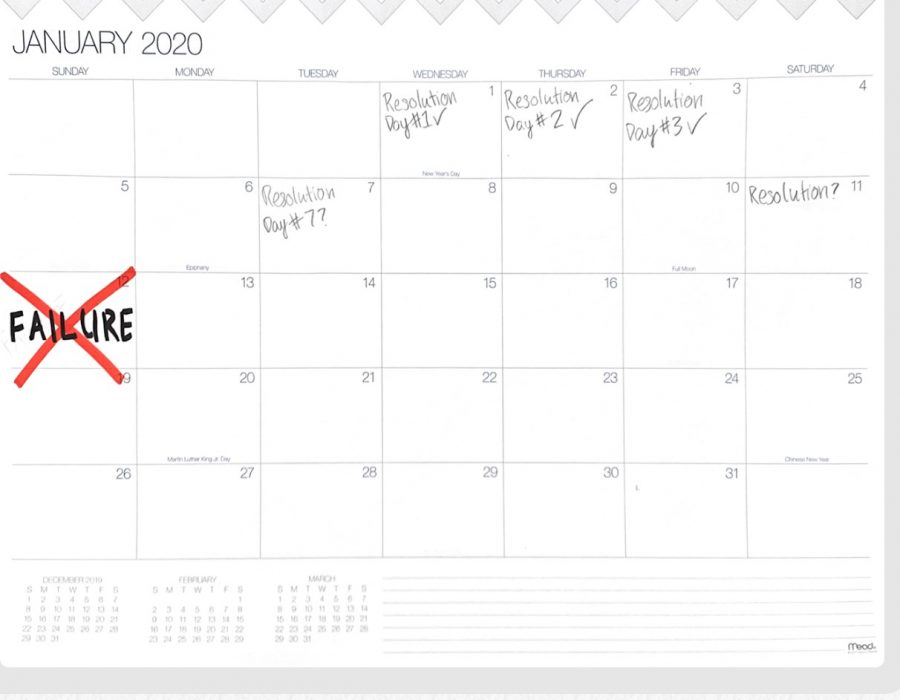How to not fail in your New Year’s resolutions this year
Are New Year’s Resolutions effective? It depends on how you set them.
At the beginning of every year, it is an expectation set a resolution for the upcoming 365 days. Whether it is to find joy in the little things, live a healthier life, or manage stress better, these resolutions are different for everyone based on what they want to accomplish and how they do so.
The tradition of setting New Year’s resolutions historically started with the ancient Babylonians. They were also the first civilization to celebrate the New Year, as Sarah Pruitt writes at History.com. But, of course, these “resolutions” were to pay off their debts to the gods and to honor them. As humankind evolved, so did this tradition.

These are the most popular New Year’s resolutions this year.
Over the decades, these resolutions have changed from a celebration of the possibility that comes with a fresh start of the year to an obligation. Every year, the percentage of Americans who participate in these changes, but research anticipated that 60% of people set them this year. Most people set resolutions in the first place, as a promise to do something different in the upcoming year. However, an article from 2018 written by Ashira Prossac through Forbes states that only 8% of all people who set them will successfully accomplish their resolution. In fact, the average fail date, when people give up in the United States is January 12. The article suggests that it is important to have a clear understanding of what you are trying to accomplish, how you will do it, and why you want to.
Prossac writes that it is more important to set intentional and achievable goals, rather than vague hopes for the future. These resolutions can seem out of reach without a refined plan for the year. Marcelo Campos curated five questions to help you accomplish your resolutions with the Harvard Health Blog: Why do you want to make the change? Is your goal concrete and measurable? What is your plan? Who can support you as you work toward change? How will you celebrate your victories?
Asking yourself these questions does not guarantee success, but it is very important to understand why you want to accomplish your goal and how you will. Even if you did not set a New Year’s resolution, learning to set intentional goals can make accomplishing them much easier.
Your donation will support the student journalists of Fossil Ridge High School. Your contribution will allow us to purchase equipment and cover our annual website hosting costs.

Caroline Sears is thrilled to be Editor in Chief along with Melissa May this year. The pair hopes to improve the paper in every way, but they are focusing on ensuring the stories are meaningful and that the paper’s staff is connected.
She is passionate about theatre and her favorite subject is English....













